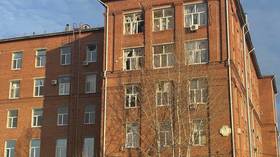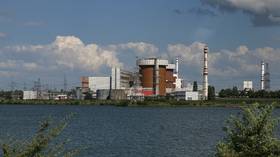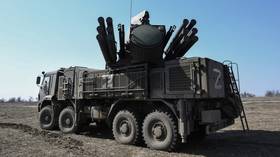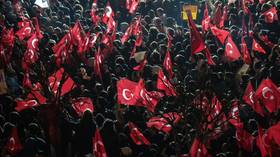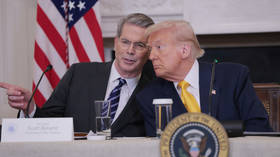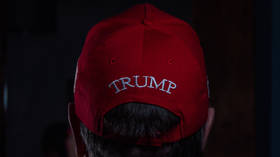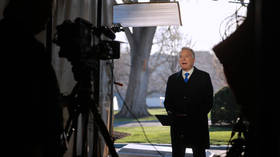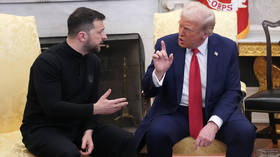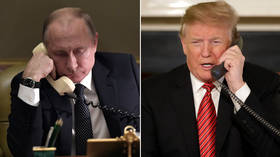D-Day commemorations – a platform for controversy
Thousands of people gathered in Normandy to commemorate the sixty-fifth anniversary of the D-Day landings.
Leaders from the U.S., France, Britain and Canada attended a series of remembrance ceremonies, paying tribute to the war dead. However, there is concern that not all sacrifices are being equally appreciated
World leaders, veterans and their families are in Normandy to honor the Allied soldiers who died 65 years ago on the beaches of France. Row upon rows of crosses mark the graves of troops who fell in the Normandy Landings.
As U.S. President Barak Obama put it, the day of commemoration is for everyone:
"It’s about the Canadians, who came when they weren’t attacked, the Russians who sustained some of the heaviest casualties."
The leaders of the largest of those nations are at the ceremony: the Prime Ministers of Britain and Canada, and the presidents of the U.S. and France.
156,000 Allied troops stormed the beaches of Normandy, and 3 000 of them died on D-Day alone.
Another 9 000 were wounded or went missing. Many of them drowned before they reached the shore. Their ultimate sacrifice marked the beginning of the last chapter of the war. A year later, it was over.
But this wasn't the primary turning point in the Second World War. It was much earlier, but historians disagree on the exact date.
Some say the German failure at Stalingrad in 1943 reversed the action. Some point to an even earlier chapter, when Soviet troops stopped the German army outside Moscow in 1941.
Despite its key role in the Allies’ victory, the only time a Russian representative has attended the D-Day celebrations was on the 60th anniversary, when Germany’s chancellor was also invited.
To explain this, historians point to an uneasy partnership between the Allies and the Soviets by the end of the war – and the Germans, too, were fearful:
"The Russian army had already defeated us when the Americans, English and French came,” Ganz Erdman Shoenbek, a German veteran from Berlin explained.
“But frankly speaking, our attitude was more friendly to the US and English, due to our mentality, than to the Russians. Because we attacked first and we, of course, feared the Russians would take revenge and eventually this came to pass," he added.
Organizers say the remembrance ceremonies honor all those who died in the name of Freedom – and there lies the paradox.
Author Marek Halter was born in the Warsaw Ghetto and was liberated by the Russians. He feels he owes the Soviets a debt of gratitude, but is under no illusions about their motives:
"I’m not a fan of Stalin, but the Germans wanted to kill me, and the Russians saved my life. And I’m grateful. I think we have an obligation not to forget that, after all, they gave 23 million people to save us," he confessed.
Political commentator John Laughland says, given the massive losses they sustained, it’s ridiculous that the Russians aren’t included in occasions commemorating the Second World War:
“The memory of the Soviet war effort was quickly obscured by the Cold War. Very quickly, it took 3 years, then, at the end of 1948, the Cold War was definitely underway. Memory is eclipsed by 40 years of Cold War, and by the memory of Eastern Europe’s subjugation by the Communists, and by Communism itself," he said.
But perhaps Barack Obama’s acknowledgement of the Soviet Union’s bravery and sacrifice this weekend will be a step towards a regular joint commemoration of the heroism of those who lost their lives fighting fascism.



